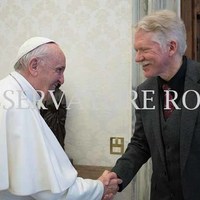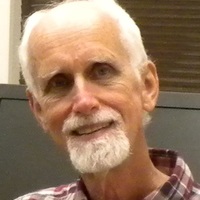
Jon Paul Sydnor
Rev. Jon Paul Sydnor, PhD is Professor of World Religions at Emmanuel College in Boston. He is the author of The Great Open Dance: A Progressive Christian Theology, which provides a comprehensive reinterpretation of the Christian tradition. The Great Open Dance introduces the concept of agapic nondualism, the sense that God's uniting love is the sustaining source of all reality.
Dr. Sydnor teaches a wide variety of college-level courses, including Progressive Christianity, Science and Religion, Religions in Conflict and Dialogue, Hinduism, Buddhism, and a travel course to India every other summer.
Dr. Sydnor is also co-editor of Nondualism: An Interreligious Exploration and founding director of The Nondualism Project, an interreligious effort to promote the concept of nondualism--interdependence, connectedness, relationality, inseparability. More information can be found at www.thenondualismproject.org.
When not teaching and writing, Dr. Sydnor serves as theologian-in-residence at Grace Community Boston where his wife, Rev. Abigail A. Henrich, is pastor. He is also a podcaster at The Progressive Sacred.
Address: Emmanuel College
400 The Fenway
Boston, MA 02115
Dr. Sydnor teaches a wide variety of college-level courses, including Progressive Christianity, Science and Religion, Religions in Conflict and Dialogue, Hinduism, Buddhism, and a travel course to India every other summer.
Dr. Sydnor is also co-editor of Nondualism: An Interreligious Exploration and founding director of The Nondualism Project, an interreligious effort to promote the concept of nondualism--interdependence, connectedness, relationality, inseparability. More information can be found at www.thenondualismproject.org.
When not teaching and writing, Dr. Sydnor serves as theologian-in-residence at Grace Community Boston where his wife, Rev. Abigail A. Henrich, is pastor. He is also a podcaster at The Progressive Sacred.
Address: Emmanuel College
400 The Fenway
Boston, MA 02115
less
Related Authors
Tom Greggs
University of Aberdeen
Robert E Doud
Pasadena City College
Rem B . Edwards
University of Tennessee Knoxville
Thomas K Johnson
Martin Bucer Seminary
Stafford Betty
California State University, Bakersfield
Dr John M Sheehan
Metropolitan Theological Seminary
Elisabeth Urtel
Concordia Seminary
InterestsView All (15)









Uploads
Books by Jon Paul Sydnor
In order to demonstrate the power of this process, this book compares two preeminent theologians, Sri Ramanuja of the Hindu tradition and Friedrich Schleiermacher of the Christian tradition. Each argues that God sustains the universe at every moment of its existence, but they work out the divine sustenance in very different ways. By comparing their description of God’s continual preservation of the universe, this book asks original, unfamiliar questions of each. Then, it speculatively suggests possible answers to those questions, inviting Ramanuja and Schleiermacher to respond to the collegial challenges raised. This method demonstrates the incisive power of comparative theology to generate critical tension, as well as the creative power of comparative theology to resolve that very tension.
Papers by Jon Paul Sydnor
Dupuis’ controversial theology of religions has been much discussed in its theoretical aspect. However, it has been largely neglected in its practical, evaluative aspect. This essay will attempt to answer two related questions. First, how helpful is Dupuis’ theology of religions if applied to a certain religion (in this case, Islam)? Second, what can we learn from the successes and failures of application? The questions are important; theology of religions exists as a discipline in order to assist Christians in their interactions with and evaluations of other faiths. Therefore, the success or failure of an applied theology of religions is one of the main determinants of its value.
The essay will conclude that the application of Dupuis’ theology of religions reveals several problems, chief among them an excessive irenicism and flawed hermeneutic of religions. Nevertheless, these flaws are rectifiable and Fr. Dupuis has made a magisterial, invaluable, and perhaps permanent contribution to the discipline.
take communion, and the surprising results of that invitation. First, I will sketch the working theology of ritual operative in our church. Then, I will describe the event of shared worship and shared ritual participation. I will conclude with an analysis of the event based on interreligious
thought and ritual theory. This analysis will lead to a positive, ethical prescription: religious traditions should selectively embrace interformation—interreligious transformation through shared
religious practice, especially ritual practice.
Keywords: Jewish-Christian relations, Eucharist, Communion, ritual studies, liturgical theology, interreligious studies, interfaith
Read the full article at: http://www.degruyter.com/view/j/opth.2016.2.issue-1/opth-2016-0056/opth-2016-0056.xml?format=INT
In order to demonstrate the power of this process, this book compares two preeminent theologians, Sri Ramanuja of the Hindu tradition and Friedrich Schleiermacher of the Christian tradition. Each argues that God sustains the universe at every moment of its existence, but they work out the divine sustenance in very different ways. By comparing their description of God’s continual preservation of the universe, this book asks original, unfamiliar questions of each. Then, it speculatively suggests possible answers to those questions, inviting Ramanuja and Schleiermacher to respond to the collegial challenges raised. This method demonstrates the incisive power of comparative theology to generate critical tension, as well as the creative power of comparative theology to resolve that very tension.
Dupuis’ controversial theology of religions has been much discussed in its theoretical aspect. However, it has been largely neglected in its practical, evaluative aspect. This essay will attempt to answer two related questions. First, how helpful is Dupuis’ theology of religions if applied to a certain religion (in this case, Islam)? Second, what can we learn from the successes and failures of application? The questions are important; theology of religions exists as a discipline in order to assist Christians in their interactions with and evaluations of other faiths. Therefore, the success or failure of an applied theology of religions is one of the main determinants of its value.
The essay will conclude that the application of Dupuis’ theology of religions reveals several problems, chief among them an excessive irenicism and flawed hermeneutic of religions. Nevertheless, these flaws are rectifiable and Fr. Dupuis has made a magisterial, invaluable, and perhaps permanent contribution to the discipline.
take communion, and the surprising results of that invitation. First, I will sketch the working theology of ritual operative in our church. Then, I will describe the event of shared worship and shared ritual participation. I will conclude with an analysis of the event based on interreligious
thought and ritual theory. This analysis will lead to a positive, ethical prescription: religious traditions should selectively embrace interformation—interreligious transformation through shared
religious practice, especially ritual practice.
Keywords: Jewish-Christian relations, Eucharist, Communion, ritual studies, liturgical theology, interreligious studies, interfaith
Read the full article at: http://www.degruyter.com/view/j/opth.2016.2.issue-1/opth-2016-0056/opth-2016-0056.xml?format=INT
“Teaching World Theologies Online.” Teaching Comparative Theology in the 21st Century: Hybrid Identities, Negotiated Boundaries. Edited by Mara Brecht and Reid Locklin. New York: Routledge, 2015.
Difference, on the other hand, invigorates community and stimulates creativity by provoking sameness out of its torpor. Sameness is static, but difference is kinetic. Sameness roots us to the present, but difference opens us to the future.
But if we truly believe in a benevolent God, then faith becomes something more life-giving. Faith becomes the enacted conviction that there is more available than the immediately obvious would suggest or even allow. And within this faith, God becomes the ever more— ever more love, ever more joy, ever more peace, meaning, and purpose.